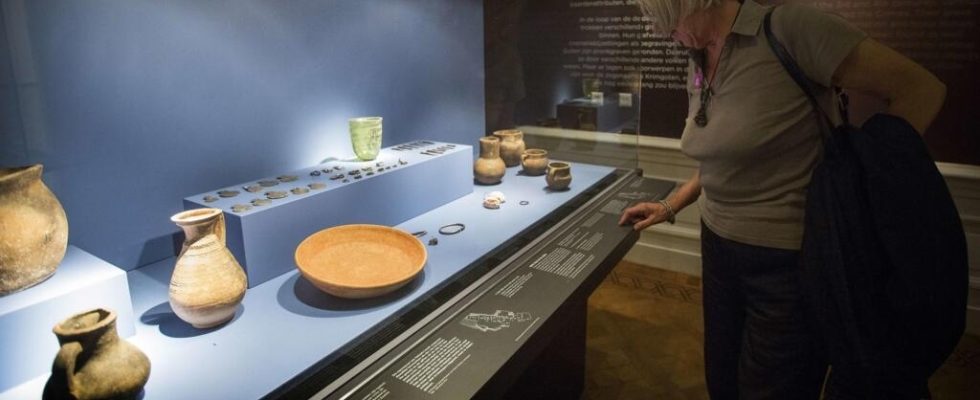The hostilities between Ukraine and Russia do not only take place on the battlefields, the two countries also clash on the more muted terrain of justice, but also that – very important – of historical narrative. Thus, on Monday November 27, Kiev announced that it had recovered major archaeological treasures, a collection of objects known as “Scythian gold”, originally kept in Crimea, which had been loaned in 2014 to a museum in Amsterdam, without the latter subsequently knowing whether he should return it to Ukraine or Russia. The Dutch authorities took almost ten years to decide to whom to return these objects, to the detriment of Moscow.
2 mins
When the Allard-Pierson Museum in Amsterdam inaugurated, on February 7, 2014, an exhibition entitled “Crimea: gold and secrets of the Black Sea”, writes our correspondent in Ukraine, Stéphane Siohanits conservatives probably did not imagine that they would find themselves a few weeks later, after the annexation of the peninsula by Russia, at the heart of a historical, legal and geopolitical imbroglio.
The objects presented in Amsterdam, dozens of helmets, swords and jewelry bear witness to the art of the Scythian people, several centuries before our era. They come from four museums in Crimea, and, at the time, the Ukrainian authorities had authorized their release; and now the Crimean museums, now under Russian supervision, are demanding their return, by summoning the courts.
Procrastination
Between 2016 and 2021, between judgments and appeals, the Dutch justice system procrastinated for a long time, finally ordering the return of the treasure to Ukraine. It has therefore been done since Monday, November 27, after a truck loaded with 2,694 kg of gold objects arrived in Kiev, at the National Museum of the History of Ukraine, which intends to keep them until to the liberation of Crimea.
This collection “ belongs to Crimea “, that is to say to Russia, reacted strongly on Monday, Dmitri Peskov, the Kremlin spokesperson, because much more than gold and its value, it is a question of knowing, to whom belongs to the history of the peninsula.
Flight
Ukraine, writes AFP, which was part of the USSR until 1991, preserves one of the most beautiful collections of Scythian art including a heavy gold pendant exhibited in Kiev and considered to have belonged to a king . Since the start of the Russian invasion, Ukraine has accused Moscow’s troops of looting its art objects and in particular of having stolen a collection of Scythian gold exhibited in a museum in Melitopol, a city in the south of the country. now occupied by Russia.
(With AFP)
Read alsoUkraine: the war continues, while snowstorms return
